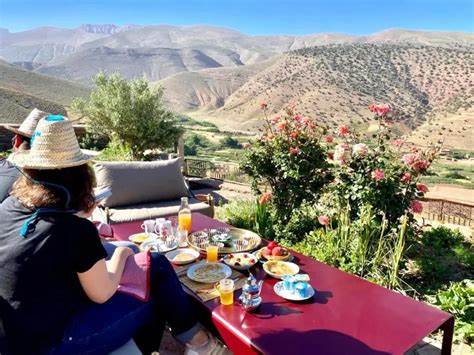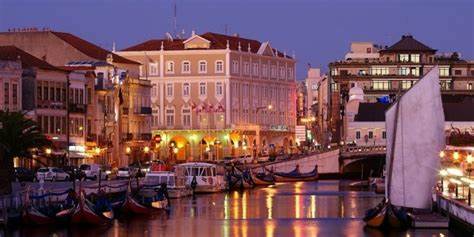Thailand, renowned for its beautiful beaches, rich history, and vibrant cities, is increasingly becoming a top destination for travelers who seek sustainable tourism, wellness, and cultural immersion. From the pristine shores of Phuket to the tranquil jungles of Chiang Mai, Thailand is rising to the challenge of blending traditional experiences with modern travel trends, offering visitors unique opportunities to explore the country responsibly and meaningfully.
Sustainability has become a priority in Thailand’s tourism industry, with an increasing number of eco-conscious accommodations and tour operators dedicated to reducing their environmental impact. One notable example is the growing popularity of eco-resorts and sustainable lodging options. In places like Koh Samui and Koh Tao, resorts are using renewable energy sources, promoting zero-waste initiatives, and partnering with local communities to preserve the natural surroundings. The island of Koh Lanta is also seeing a rise in eco-tourism, with its local businesses offering guided tours that focus on environmental education, such as turtle conservation programs and forest restoration efforts. These efforts not only protect Thailand’s natural beauty but also help raise awareness among travelers about the importance of preserving ecosystems.
Thailand’s wellness tourism scene is flourishing as well, with many travelers seeking relaxation and rejuvenation in the country’s tranquil settings. Wellness resorts in Chiang Mai and Hua Hin are particularly popular, offering yoga retreats, meditation, detox programs, and traditional Thai spa treatments. Visitors can escape the stresses of everyday life and embrace holistic healing practices that are deeply rooted in Thai culture. These wellness centers often combine modern spa treatments with ancient techniques like Thai massage, herbal therapies, and meditation practices that promote both physical and mental well-being. In addition, many wellness resorts are located in serene natural environments, such as the foothills of the Himalayas or along the stunning beaches of Koh Samui, allowing guests to reconnect with nature and find inner peace.
Cultural immersion is another trend that is thriving in Thailand. Rather than simply visiting popular tourist destinations, more travelers are seeking to engage with the local culture and learn about the country’s history, customs, and traditions. In cities like Ayutthaya and Chiang Rai, visitors can explore ancient temples and ruins, while also interacting with local artisans who practice traditional crafts like pottery, weaving, and silk production. Cultural tours that include cooking classes, Buddhist temple visits, and homestays in rural villages allow tourists to gain a deeper understanding of Thai life. These experiences not only enrich the traveler’s journey but also support the local communities by providing income and preserving traditional practices.
The trend of slow travel is also gaining traction in Thailand, with many visitors opting for longer stays in smaller towns or less-visited regions. Instead of rushing through the typical tourist spots, slow travelers in Thailand are spending more time in places like Pai, a small mountain town in northern Thailand, or Sukhothai, home to ancient ruins and quiet countryside. These destinations offer a slower pace of life, where travelers can take the time to enjoy local food, explore hidden gems, and interact with friendly locals. By staying longer in one place, travelers not only have the opportunity to truly immerse themselves in the culture but also contribute to the local economy in a meaningful way.
In addition, Thailand is becoming increasingly popular among digital nomads. With its affordable cost of living, reliable internet, and a wide range of co-working spaces, the country is quickly becoming a hub for remote workers seeking a balance between work and play. Cities like Chiang Mai, Bangkok, and Phuket offer modern amenities while allowing digital nomads to enjoy a relaxed lifestyle surrounded by nature, beaches, and cultural experiences. Many nomads enjoy the flexibility of working remotely while taking advantage of Thailand’s incredible food scene, outdoor activities, and vibrant communities.
Technology continues to shape how travelers experience Thailand, with online platforms and mobile apps making it easier to plan sustainable and personalized trips. Travelers can use these tools to book eco-friendly accommodations, discover local experiences that prioritize sustainability, and even access virtual tours of temples or national parks before making their travel decisions. These advancements not only streamline the booking process but also enable travelers to make more informed choices about how they spend their time and money in Thailand.
As Thailand embraces these trends in sustainable tourism, wellness, slow travel, and cultural immersion, the country is positioning itself as a destination for conscious travelers who want to explore responsibly and connect meaningfully with both the environment and the local culture. Whether it’s experiencing a traditional Thai massage in a remote village, hiking through lush jungles, or enjoying a week of wellness in a beachfront resort, Thailand offers a diverse range of experiences that cater to the modern traveler looking for a more mindful and enriching journey.






